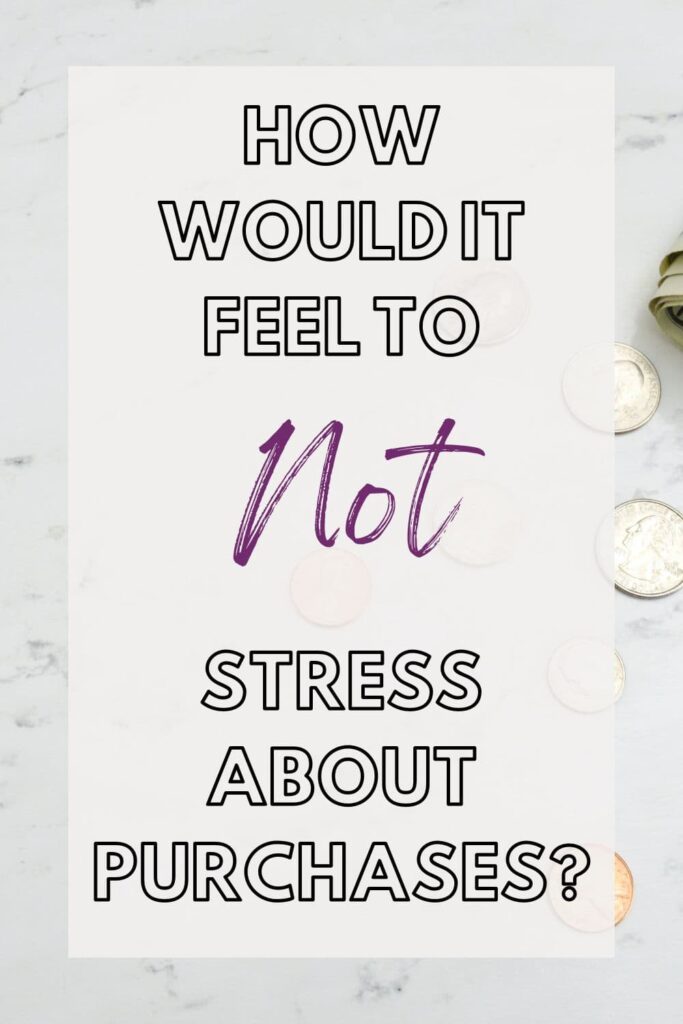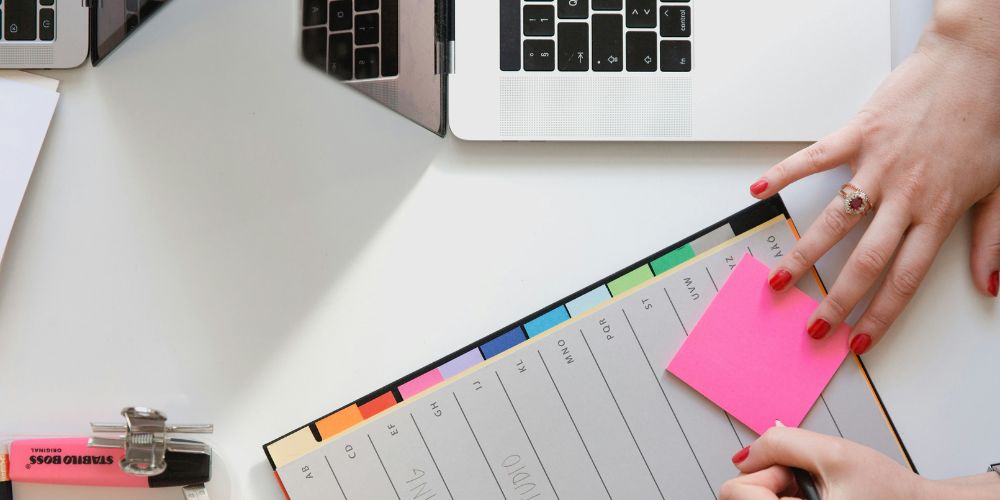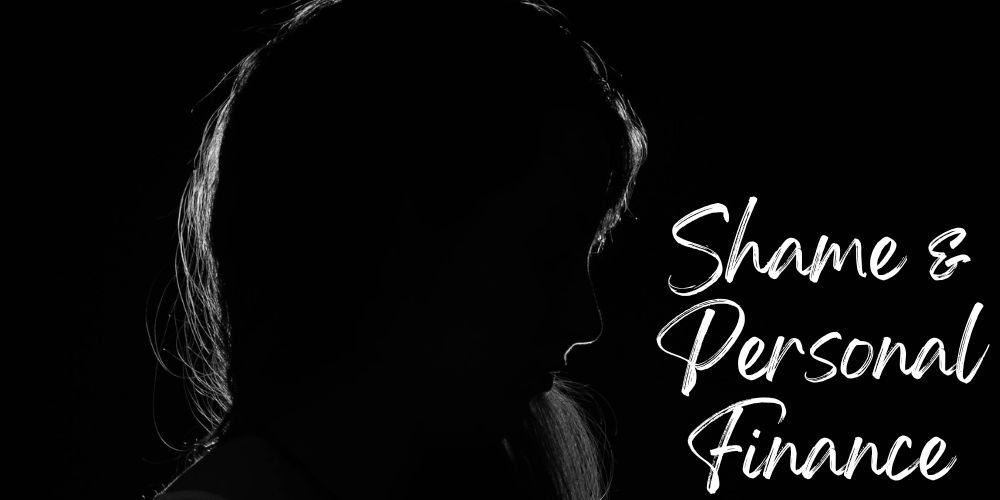How would it feel to have money as a minimal stressor in your life?
It’s pretty unrealistic that it will never be a stressor, but you can minimize it.
I recently had an experience where the exact running shoes I have worn were on sale for $89 from $140. Because of this sale, I bought two pairs and didn’t give it a second thought (well…I gave it many thoughts because I was so thrilled by the deal!).
What does it look like to minimize stress about money?
Imagine being able to go on a last-minute trip or buy a purse you’ve been eying without having to worry about running up a credit card bill.
This is over and above the functional stuff. The idea is that you plan for the functional stuff so that you can enjoy what you want to enjoy.
Of course, this is all within the limits of your ability to pay for said little luxury without debt.

How do you get to the point of not stressing the small stuff?
I find this is only really possible with a written budget. After creating a budget, working out a plan for the “big picture” financial items will help relieve a lot of stress with smaller purchases.
For some, keeping a close eye on your budget may have to be a lifelong habit. For others, meticulous attention may only need to be paid to your budget for a season.
Either way, the goal of a budget is to develop new spending patterns and be able to know exactly where your money is going.
What I am not saying
This is not a message about spending for fun, only to get back into debt. Through budgeting, you should develop an idea of what the necessities in your life cost as well as your approach to spending money in general.
What does “big picture finances include?”
You may have additional expenses that you need to save for, but these are categories most people will need to account for.
Retirement
Funding 401(k)s or IRAs. According to Dave Ramsey, this should be 15% of your income. I think that while this is a good benchmark, it’s helpful to remember that this probably won’t be a constant. You will have seasons where this is more or less, but it’s a good goal to consistently contribute something.
Debt Payoff
If you want to enjoy purchases without worry, the only way to get to this point is to have all consumer debt paid off. It will be hard to enjoy purchases knowing you have a ball and chain of debt elsewhere.
Sinking Funds
These are separate savings accounts to set aside money each month for an annual or otherwise irregular expense. For example, I have an account for home/auto insurance since it’s cheaper to pay annually than month to month. Minimizing money stress and enjoying purchases necessitates having money set aside for known expenses and an emergency fund.
HSA or other Healthcare Account
If you have a high deductible healthcare plan, contributing to your HSA has many benefits. Generally, any money contributed to it is tax-deductible to you. For some, this can be a good way to invest in healthcare for your future.
My husband and I only contribute enough to cover our deductible for the next year. We have started contributing a little more so that we have some extra cushion at the beginning of the year from our HSA since we have had a lot of healthcare costs over the past few years.
Charitable Giving
I encourage you to make this a part of your budget – even if you are still getting out of debt. Depending on the season of your life, and therefore financial picture, this may be a small percentage or a large percentage.
I have come to think of charitable giving as exercising – Just keep doing it even when it doesn’t feel good. Exercising 10 minutes a day is better for your body than nothing. Similar to charitable giving – even a couple of dollars a month helps to make it a habit in the long run.
Various insurance
Whether it’s car, homeowner, life, or some other insurance, these can become expensive line items in your budget. Breaking down the costs into monthly amounts and automatically saving that amount does wonders for relieving worry when the bill comes due!

Planning for these areas gives greater freedom elsewhere
When you have a plan for these areas, as well as a general idea of your “spending” category, you can let go of the anxiety of buying that gift or going out to dinner.
I don’t track my “spending” super closely. I have a general idea about how much we spend on “fun stuff” each month. Naturally, I am a saver, so that mentality also helps. If you know yourself to be more of a “spender”, then it will be helpful for you to have a concrete dollar amount to spend on “fun stuff” each month. The goal is to have enough of a grip on your overall financial situation so that you can make purchases with confidence.
Why does this matter?
Don’t you want to have a sense of freedom with your finances?
Sure, there will be seasons that are hard. You won’t have much if any “spending” money. You will have to say no to things. But remember, it is only a season.
Establishing good spending patterns and learning to stick to a budget will become second nature over time. After paying off consumer debt, you won’t have to worry as much about finances. You can make those additional purchases with confidence.
Taking care of big items contributes to a feeling of freedom in life. Take care of the big stuff so you don’t have to sweat the small stuff.



